Futurebuild’s main focus this year was on Circular Cities and Circular Economies. Circular Cities/Economies is an economic theory based on the finite resources of the planet and how all things have a dollar value. According to Circle-Economy.com, “Circular Cities believe the built environment should be a ‘living’ system in which building materials and products are optimally used and reused–a system that operates within the boundaries of our planet, preserves the (business) value of its resources, and ensure the wellbeing of its inhabitants.”
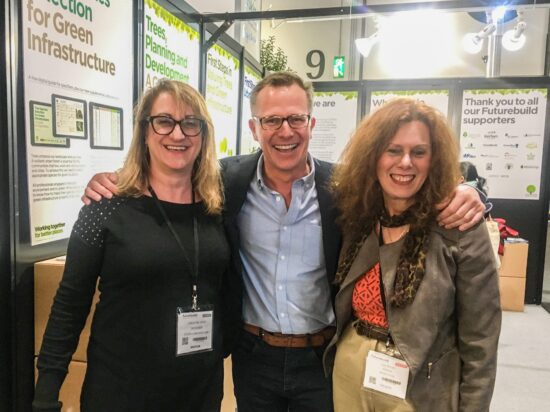
Seeing all organic and inorganic materials in our world with a monetary value will help us see the value in what these objects have. Purchasing building materials locally will help the economy, reduce transportation costs, and hopefully, reduce pollution. Providing cost benefit analysis to politicians on how much it will cost to retain trees, plant new trees, and the overall cumulative benefits to those living in these environments willcreate healthier cities and a new mind set.
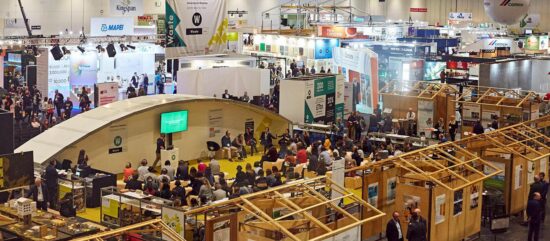
Panel discussions at Futurebuild Conference included topics on the Future of Energy, Materials, Interiors (including the Well Program), and Urban Infrastructure. The emphasis was on the future of small housing units, the continuance of environmentally friendly products, and the reuse of existing materials and reducing our impact on the earth.
The event floor was cleverly designed to fit the lecture facilities into the noisy floors through the use of headphones and sound mitigation. All stages and lecterns were created with recycled products.
The event has scaled down but the impact of the programs and lectures was big. The annual event was free and held at the ExCel Centre in London, United Kingdom. Next year’s Futurebuild will take place on March 3rd– 5th, 2020 at the same location in London.


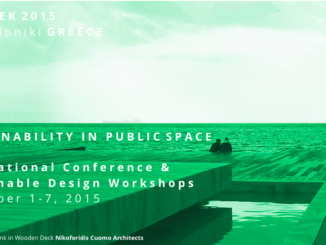
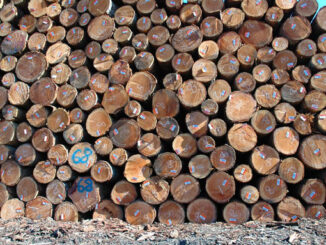
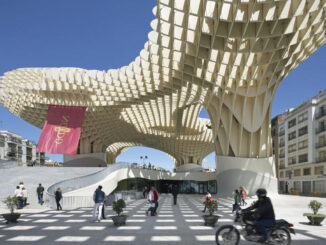
Be the first to comment